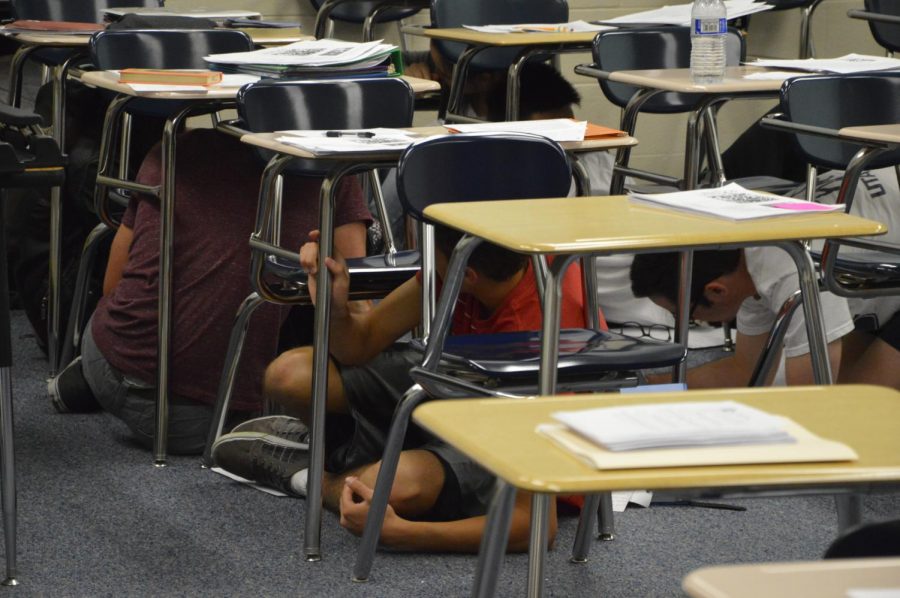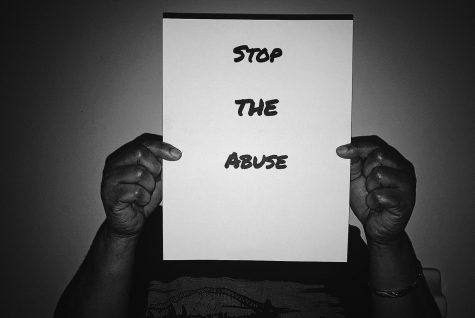Will the new MSD Act be “ENOUGH”?
February 13, 2020
On February 14, 2018, 17 lives were taken too soon, launching a nationwide discussion on school safety, gun laws, and mental health. Seemingly, the many demands, by both students and adults alike, following the shooting were answered. Recently, Florida Governor Rick Scott, in cooperation with school officials, mental health experts, and law enforcement officials, have created and passed CS/SB 7026: Public Safety, better known as the “Marjory Stoneman Douglas High School Public Safety Act”. This act will provide additional grants to improve school security, address who can purchase a weapon, along with some additional demands. The many young teenagers turned activists as a result of that fateful day, such as David Hogg, Emma González, David Hogg, Cameron Kaskey, Alex Wind, and Jaclyn Corin, who spoke out following the shooting were eventually heard. Now the question is, will the “Marjory Stoneman Douglas High School Safety Act” truly be, as the title of one Time Magazine article suggests, “ENOUGH”?
When you say increased school security, what do you mean exactly?
The MSD Act had the main aim of increasing school safety through a dramatic surge in security and overall surveillance on school campuses.
Following the enactment of the law, Damien Kelly, a former employee of the Florida Department of Law Enforcement, was the first director of the new Office of School Safety. One of her first acts in this position was to conduct risk assessments. Some schools passed these assessments by adding metal detectors or bulletproof glass as funded by half a million dollars to improve the many outdated and no longer secure safety measures in Florida schools. A boost in on-campus police officers due to the “Safety Act” and its requirement of at least one law enforcement officer for every thousand students. These actions will not only quickly contain any threat to one’s school, but, it can also act as a repellent to any possible danger to student safety.
In class, surveillance will be increased and encouraged among school staff. Both the Crime Stoppers Trust Fund for student crime watch programs and the Guardian Program may motivate students and teachers alike to speak up about any threats to school security. Schools are now eligible to receive a $500 stipend for school staff who participate in the Coach Aaron Feis Guardian Program named for the coach and teacher killed. Furthermore, the General Revenue Fund granted $67 million to give to any sheriffs’ offices who establish this program. Each of these acts will create a safer community because they will arm school staff with the knowledge they need to protect their students, a fatal weakness during the MSD shooting.In addition, teachers will be trained to notice and report any strange and possibly dangerous behaviors among their students.
How will this act raise awareness for those with mental illness?
One defining feature of the Marjory Stoneman Douglas Shooting was the many warning signs shown by Nikolas Jacob Cruz that were ignored by law enforcement. For schools to better help and support students with mental illness, the Multiagency Service Network for Students with Severe Emotional Disturbance (SEDNET), along with $70 million in funding for mental health programs for Florida Schools. SEDNET will encourage the sharing of information between state, regional, and local organizations to target and provide the proper aid to students with or at risk of a mental disorder. Advocates for the MSD Act suggest that schools provide mental wellness training for school staff and health screening for students. Increased mental health awareness in schools will provide students with the help they need before conditions worsen.
Ban on Weapons?
In addition to granting students with mental illness a support system, the new law permits officers to take firearms from and prevent those with a history of mental illness from obtaining a gun through the Baker Act. This act will require any person who has previously been placed in a mental institution to surrender their weapon to law enforcement for a minimum of 60 days. Finally, the age to purchase a firearm, as proposed by Governor Scott, will be raised to 21 years old.
What are the new protocols?
The MSD Act requires the District Superintendents to select a “school safety specialist” for the district who will oversee all school safety personnel. This school safety personnel (at least one at each school) will be charged with the responsibility that the school is following its mandated semesterly active shooting drill as well as managing the emergency preparedness and regular practice of fire, natural disaster, and bomb threat drills.
The negatives?
The Department of Education (DOE) seems to be taking some Orwellian steps as well. For example, they will be collecting data from public social media pages to feed into an integrated data repository through a social media monitoring app. This integrated data repository, created in cooperation with the Florida Department of Law Enforcement by the Office of Safe Schools, will be shared with the Department of Children and Families, the Department of Juvenile Justice, and Local Law Enforcement. These acts by the DOE are tearing down the little privacy citizens have online. However, student safety is considered paramount to privacy on public social media pages. Actions like these, in combination with the FortifyFL app which will be able to identify with the aid of students and teachers to report any suspicious activity. Steps against student privacy could have the opposite effect. Instead of students feeling open to discussing their thoughts and emotions without fear, they may close up and react in negative ways.
By the same token, the DOE has concerned itself with mental illness among the student body at schools. Unfortunately, their actions may cause further paranoia and mistrust between the students and school staff. This invasion of privacy is, however, considered minuscule when compared to the importance of the information gained to the protection of students by many.
Are these protocols here at Somerset?
Many of these protocols have already been applied to the Somerset campus, with an increase in officer surveillance being the most noticeable. However, there are a few changes within the classroom that are unknown to students. For instance, Somerset staff must report any suspicious activity, including verbal threats. Verbal threats are often administered in a sarcastic frame of mind but can and will now be interpreted as literal threats to school security. Somerset has also instituted its threat assessment and monthly drills to ensure the safety of its students.











